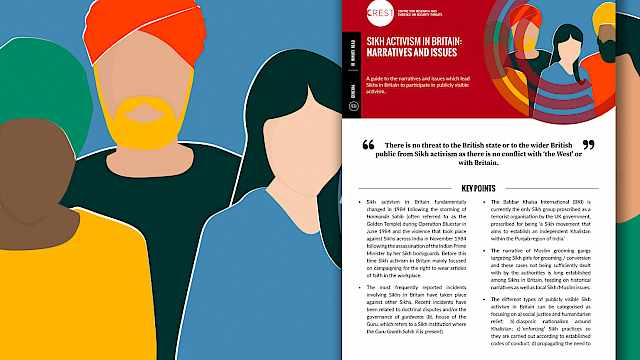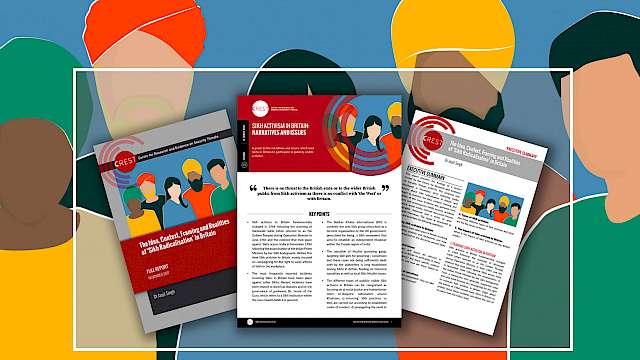
Ethno-national, religio-cultural or anti-Muslim? Investigating Sikh radicalisation in Britain.
The project investigates the idea, context, framing and reality of “Sikh radicalisation” in Britain, an issue which has received much political and media attention, but little academic attention to date. The aims and objectives are:
- To undertake an in-depth systematic review of relevant literature on Sikh local/transnational networks, mobilisation and activism in Britain.
- To examine who participates in different types of networks, mobilisation and activism (ethnonational, religiously “fundamentalist” and anti-Muslim), and why.
- To investigate the continuing impact of historical trajectories on British Sikhs (e.g. the events of Operation Bluestar in June 1984 and the subsequent violence against Sikhs in Delhi in November 1984), how they learn about, interpret and act upon current events in the Panjab and violent/non-violent reaction(s) to these events.
- To interrogate the idea, context and framing of ‘Sikh radicalisation’ in the UK and consider the changing nature and realities of Sikh activism in Britain in light of the findings.
- To produce academic and non-academic outputs on blogs, online newspapers and in academic journals
- To present findings on a website (arts.leeds.ac.uk/jasjitsingh) and through social media.
The project builds on earlier work on processes of religious and cultural transmission among young British Sikhs, as well as work on theorisations of diasporas, religious movements/communities and the state in UK South Asian diasporas. The project will extend this earlier research by examining how the transmission of ethnonational, conservative religious and anti-Muslim ideas impact on networks, mobilisation and activism that the state, organisations and religious communities themselves may frame in terms of “radicalisation”.
Research questions
- How do Sikh activists legitimise violence? What are the specific religious and cultural dimensions to legitimate violence? How do those taking part in violent protests in Britain, perceive their relationship with the British state? In what ways do the different types of activism promote violence?
- Who are the actors involved in different strands of activism? Do the same people participate? Can they be distinguished along class/generational/migratory/gender lines?
- Through which channels do British Sikh activists learn about ‘ethnonational’ and ‘religio-cultural’ events? How does the channel of consumption impact on reactions to these events?



